【新唐人2012年4月14日訊】中國和菲律賓艦船在南海的對峙,13號,已經進入第四天,這被認為是多年來兩國之間最嚴重的海上對峙。但種種跡象顯示,兩國都試圖避免事件演變成一場軍事衝突,但兩國都互相警告說,為了保護對這些島嶼的主權,會進一步採取行動。
自4月8號開始,菲律賓海軍以國際法所規定的200海浬專屬經濟區為依據,試圖扣押在黃岩島海域捕魚的中國漁民,但遭到中國兩艘海監船的阻攔。12號,中國又派出第三艘海監船到黃岩島海域。
政論家伍凡:「 從民國時期算起,已經把南海從台灣島一直到最南邊曾母暗沙、南沙全島最南端這一大塊都化為中國的鄰海,那是從蔣介石時代就已經宣佈了。中共的政權呢,他們是大陸主義,對海洋從來不重視,也沒有力量去重視,一直就是搞內鬥。」
伍凡指出,黃岩島雖然靠近菲律賓, 1936年中華民國就宣佈這個島是中國的,但中共已經損失了很多這樣的小島。現在中菲爭的不僅是這個小島,更主要的是海底的石油。
中國的《國際先驅導報》09年報導,在中國300萬平方公里的主權海域中,實際控制的不到一半,中國的海洋資源更是遭到了周邊國家的大肆掠奪。
不過,中菲都在試圖化解危機:菲律賓把最初派出的最大一艘軍艦改為護衛艦,中國也將現場的三艘海監船減少到兩艘。《華爾街日報》消息指出,目前雙方雖然還在對峙,但外交談判取得了進展,中菲兩國同意撤回他們在這個問題上的外交抗議。
而《環球時報》的語氣卻有不同,《環球時報》揚言:如果菲律賓和越南兩國想打一場海上戰爭,請他們打第一槍,中國一定會堅決奉陪,送給他們一個不能動「同中國打仗念頭」的沉痛教訓。
伍凡表示,《環球時報》的論調反映了一部分民意。目前,如果這三艘船先撤走了,中國人一定罵死這個中共政權,說:天天就會鎮壓老百姓,保護不了自己的領土、領海。伍凡還說,國際上,人家也瞧不起,會認為這麼大的國家,對菲律賓都守不住自己領海,你中共還管理甚麼國家啊?
伍凡希望中共政府不要再退縮,保護好漁民和國土。
伍凡:「長期的僵持下去對中國有利。共產黨倒了以後,這個地方還會發生爭執。作為中國,無論是哪個政府都應該保護自己的領土、鄰海、小島。」
不過,在中菲對峙時刻,美國和菲律賓開始聯合軍演,其中包括在南中國海的軍事演習。菲律賓此前還得到了美國政府支持的承諾。
「美國安全中心亞太安全計劃」的高級主管派翠克.克羅寧對《美國之音》表示,這些承諾意味著,如果菲律賓由於領土爭端而與中國發生衝突的話,美國確實會來協防他們。
時事評論員文昭指出,鑒於目前中國國內的政治和經濟形勢,不允許用戰爭來解決同鄰國的領土主權糾紛,而且南海現在已經國際化了,使戰爭的可能性更小。
文昭:「通過軍事手段解決南海時機已經喪失了,這地方已經是世界各個大國共同關注的一個地區性議題,所以說某個國家單方面用武力去解決會遭致非常嚴重的政治後果。這個成本太高,已變得不可承受了,按軍事解決的可能性已經不存在了。」
但《美國之音》分析說,即使這場衝突可以避免,也會進一步加劇亞洲國家的兩極分化,部分國家跟中國靠得更近,另一部分更靠近美國。這對亞太地區的安全將會產生影響。
(採訪/朱智善 編輯/宋風 後製/君卓)
======================
Confrontation between China and Philippines causes tension
in South China Sea
The ship altercation between China and Philippines in the
South China Sea, on April 13th, has entered the fourth day.
This is considered a sea confrontation between the two
countries over the years.
There are signs that both of them are trying to avoid
a military conflict.
But the two countries warned each other, in order to protect the
sovereignty over these islands, they will take further actions.
Since April 8th, the Philippine Navy took the 200 nautical mile
exclusive economic zone under international law as a base line,
Then they tried to seize Chinese fishermen who fished in the
waters off Huangyan Island.
But two Chinese ocean surveillance ships blocked them.
On April 12th, China sent a third ocean surveillance ship to the
waters of the Huangyan Island.
Wu Fan, political commentator: "From the beginning of the
Republic of China, the South China Sea from Taiwan to the
most south of James Shoal, (Nansha island-wide's southern-
most tip), has been designated as China's adjacent sea.
It is since the era of Chiang Kai-shek that this was announced.
The regime of Chinese Communist Party (CCP) is the power
of the mainland. They never pay attention to marine issues.
They also have no strength to pay attention either. They have
always been engaged in infighting."
Wu Fan pointed out that although Huangyan Island is near the
Philippines, the Republic of China declared in 1936 that the
island belongs to them. But the CCP has lost many such islands.
Now China and Philippines dispute not only the island, but
more importantly rights to the oil in the sea bed.
"International Herald Tribune” reported in 2009 that among the
three million square kilometers of Chinese sovereign waters,
those actually controlled by China are less than half. China's
marine resources were plundered by neighboring countries.
However, China and Philippine sare trying to defuse the crisis.
Philippines sent a frigate, instead of the initial biggest warship.
China also reduced the ocean surveillance ships on-site from
three to two.
The Wall Street Journal pointed out that though the two sides
still have a confrontation, diplomatic negotiations have made progress.
Both countries have agreed to withdraw their
diplomatic protests on this issue.
But “Global Times” has a different tone. “Global Times”
threatened: If Philippines and Vietnam want to fight a war at sea,
please fire the first shot. And China will resolutely fight
and give them a painful lesson that they won't expect.
Wu Fan said, the argument of "Global Times" reflects part of
Currently, if the three ships withdraw first, Chinese people
will strongly blame the CCP regime.
He said: “the CCP just crushes its people, not protecting its
own rights in territorial waters.”
Wu Fan also said that in the international arena, foreigners
will look down on China.
They would think that such a large country could not protect
its own territorial waters against the Philippines.
In that case how can the CCP manage the country?
Wu Fan hopes the CCP will not retreat, and protect fishermen
and its territory.
Wu Fan: Long-term stalemate is a benefit for China. After
the collapse of the CCP, this place will still have a dispute.
The Government of China should protect the territory,
territorial sea and islands no matter what kind it is.
About the time of the confrontation between China and the
Philippines, the U.S. and Philippines began joint military exercises,
including in south of China's territorial sea, gaining
promise of U.S. government's support beforehand.
Patrick Cronin, senior executive of Asia-pacific Security Plan
of the U.S. Security Center told Voice of America that promise
means if Philippines conflicts with China due to the territory
dispute, the U.S. surely defend Philippines.
Wen Zhao (news commentator) pointed out given China's
domestic, political and economic situation, using war to solve
the territorial dispute is prohibited. The problem of the south
sea is international which implies a lesser possibility of war.
Wen Zhao: “Timing for using war to solve the south sea event
is over. Great powers in the world are all focus on the issue of this place,
thus it will cause severe political impact if some
country uses war to solve the problem.
The possibility of war to solve the problem has disappeared
because the cost of war is too high to bear”.
However, Voice of America analyses that even if the war can
be avoided, it will intensify the polarization of Asia countries.
Some countries are getting close to China and others close to
the U.S. It will affect the security of the Asian-Pacific region.
看下一集
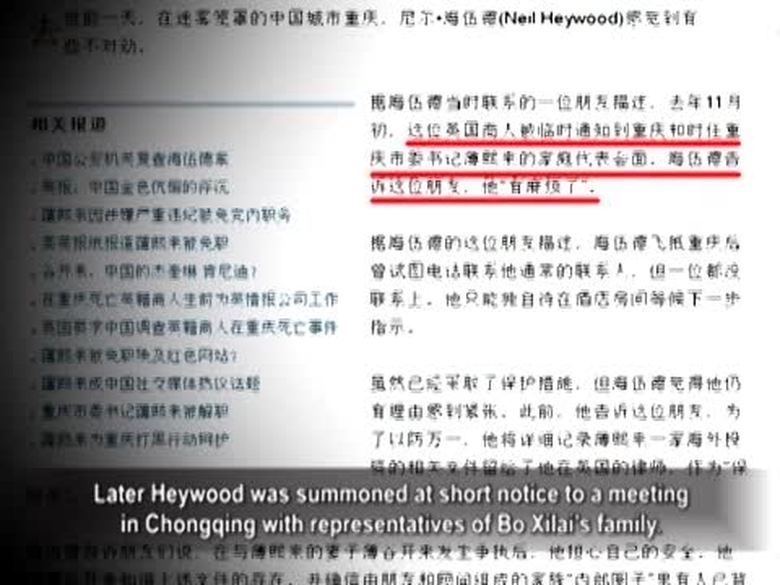
【禁聞】海伍德案秘辛 谷被薄暴打性虐待
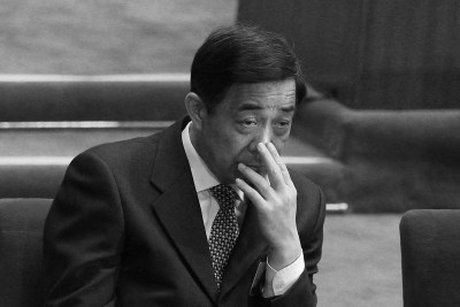
【禁聞】薄熙來家族海外巨額資產被曝光
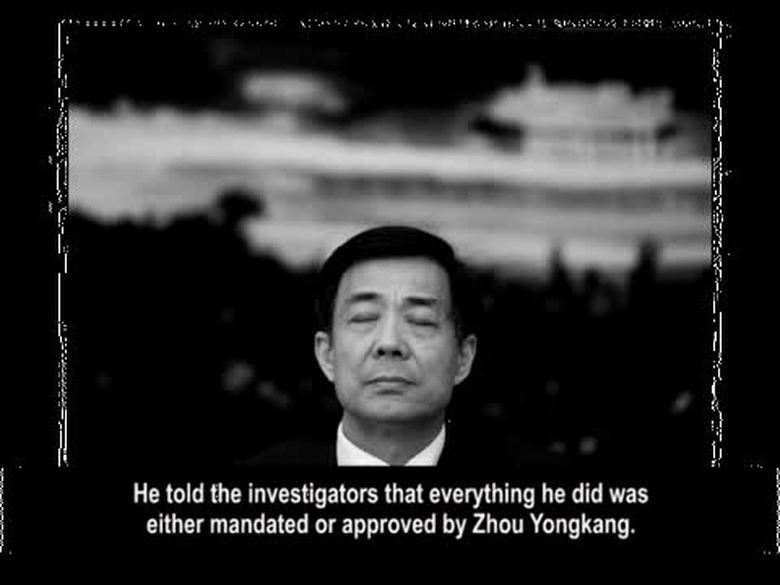
【禁聞】薄求親見胡溫揭周 “刑上大夫”?
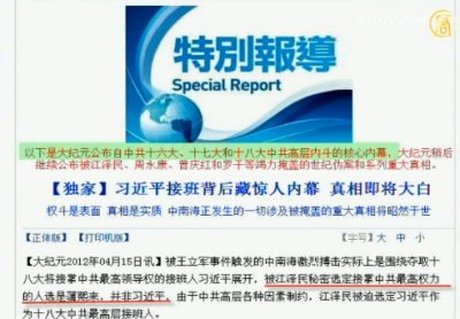
【禁聞】中共權鬥核心內幕 真相即將大白
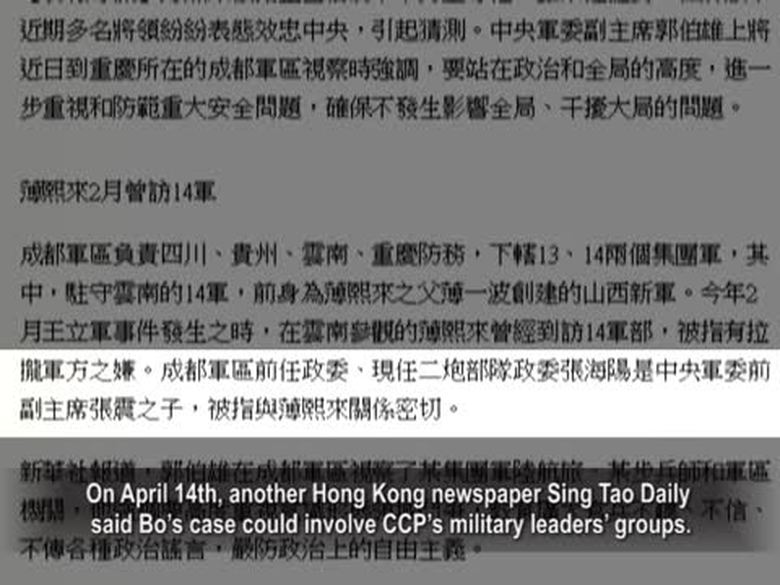
【禁聞】 張海陽行蹤不明 郭伯雄赴成都軍區

【禁聞】為掩姦情及洗錢 傳薄下令殺海伍德
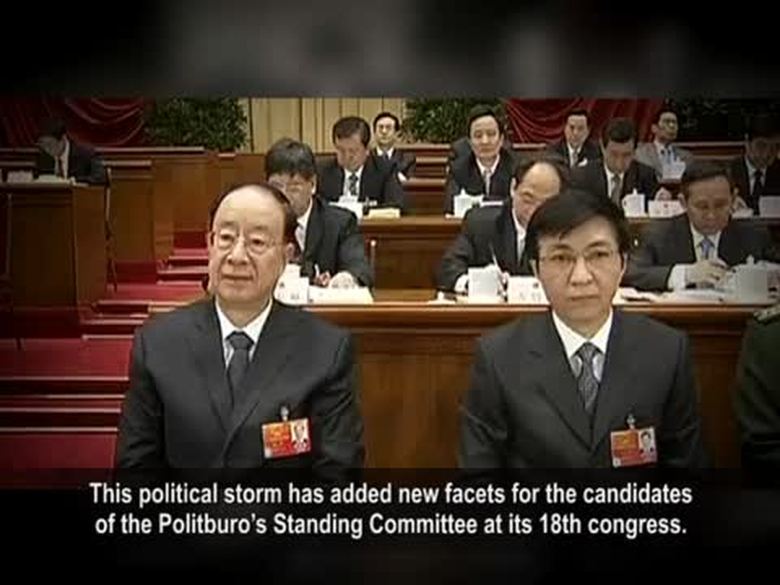
【禁聞】傳胡錦濤擬恢復七常委 徹底清江派
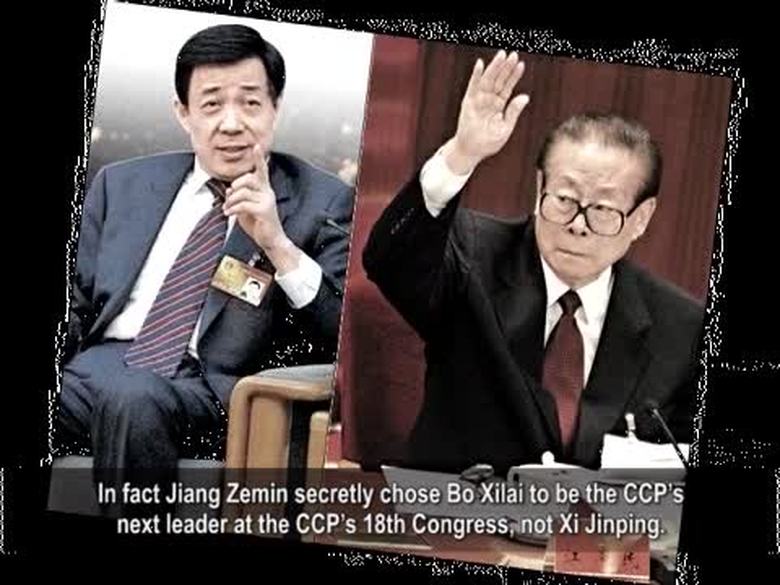
【禁聞】習近平接班背後驚人內幕被揭

【禁聞】習近平接班背後驚人內幕被揭

【禁聞】胡耀邦忌日 溫家寶發文劍指周永康
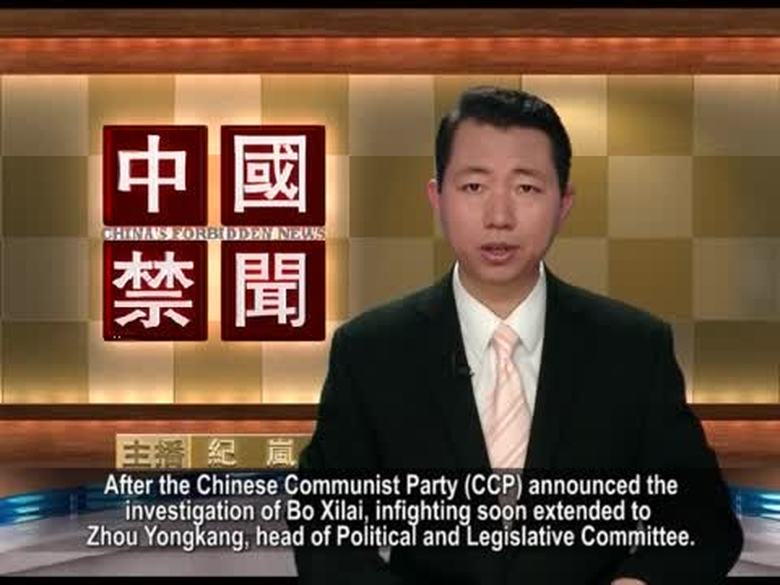
【禁聞】周永康去留成焦點 溫習力主調查
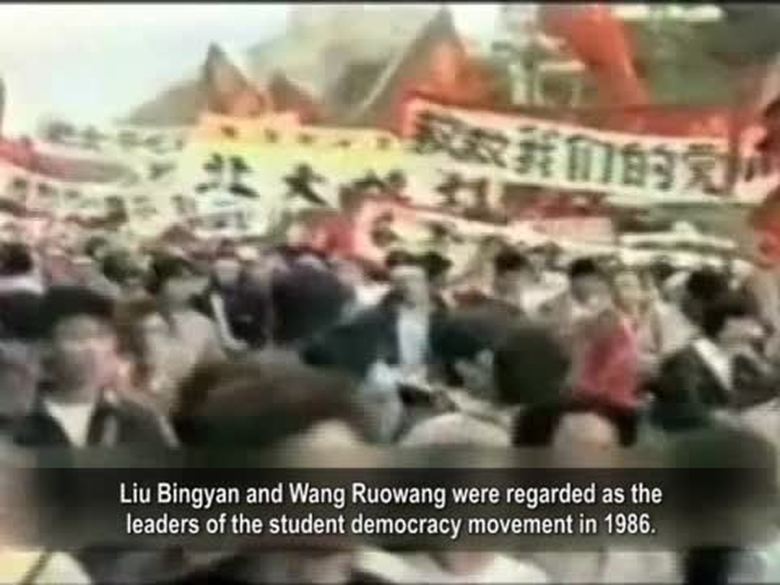
【禁聞】方勵之如何能魂歸故里
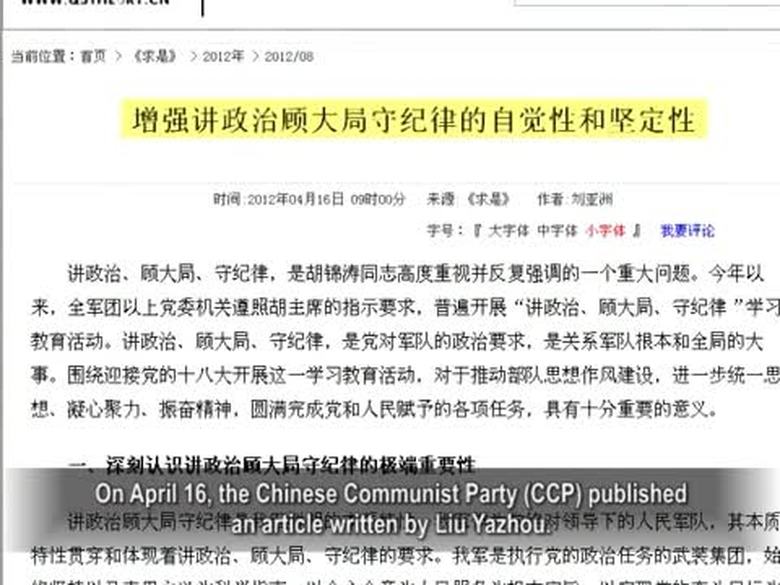
【禁聞】清洗左派?民主派將軍劉亞洲表忠
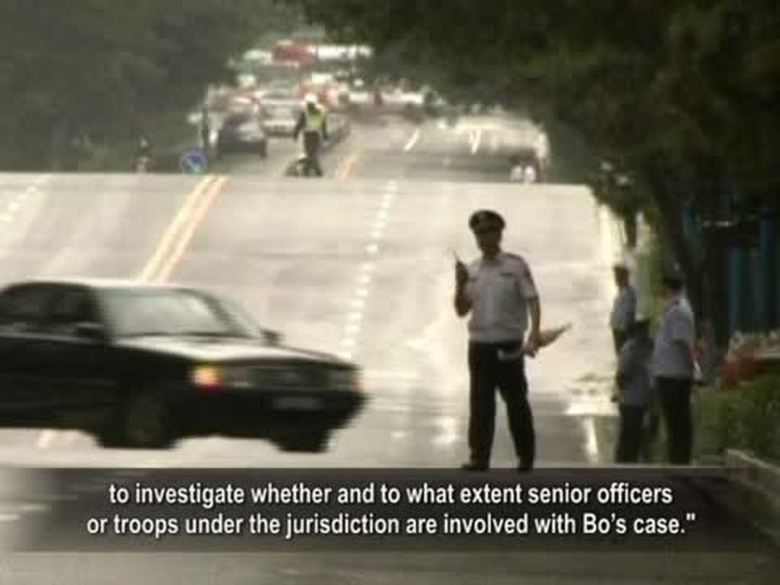
【禁聞】軍委五調查組赴雲貴 還有誰涉薄案?
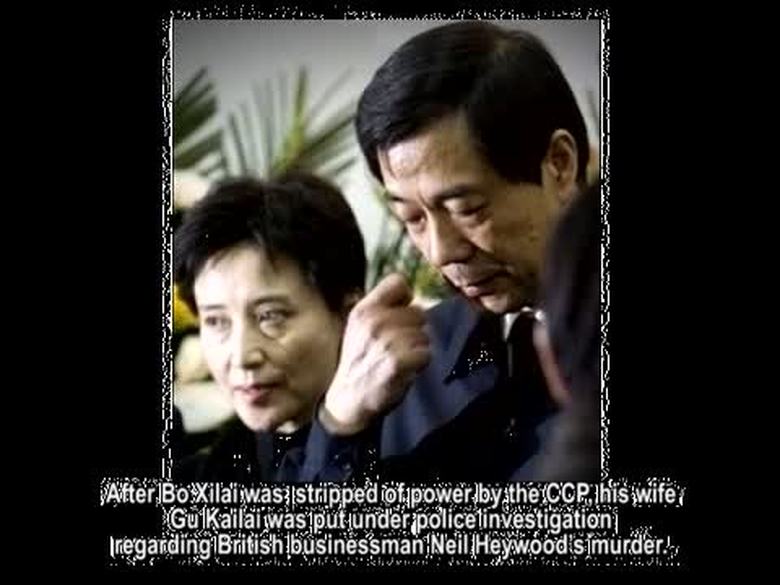
【禁聞】遠離中國! 薄瓜瓜 王露露尋保護
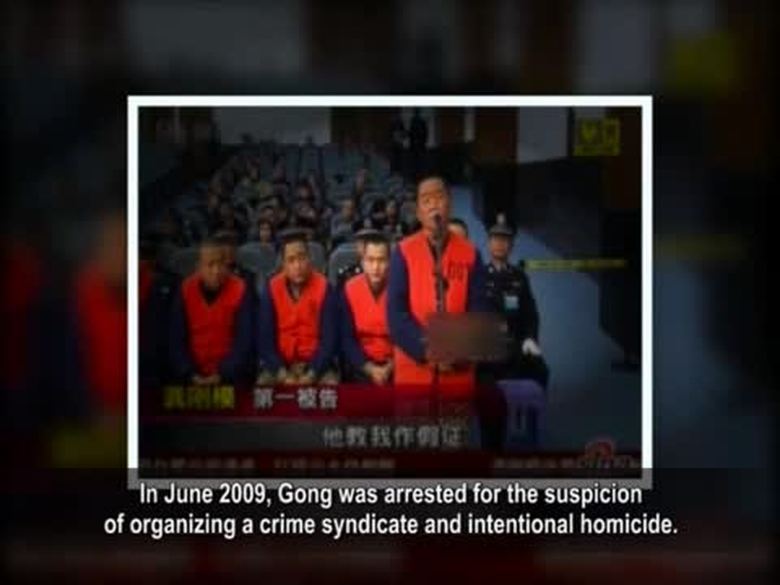
【禁聞】李莊遞交新證據 重慶法院簽收








